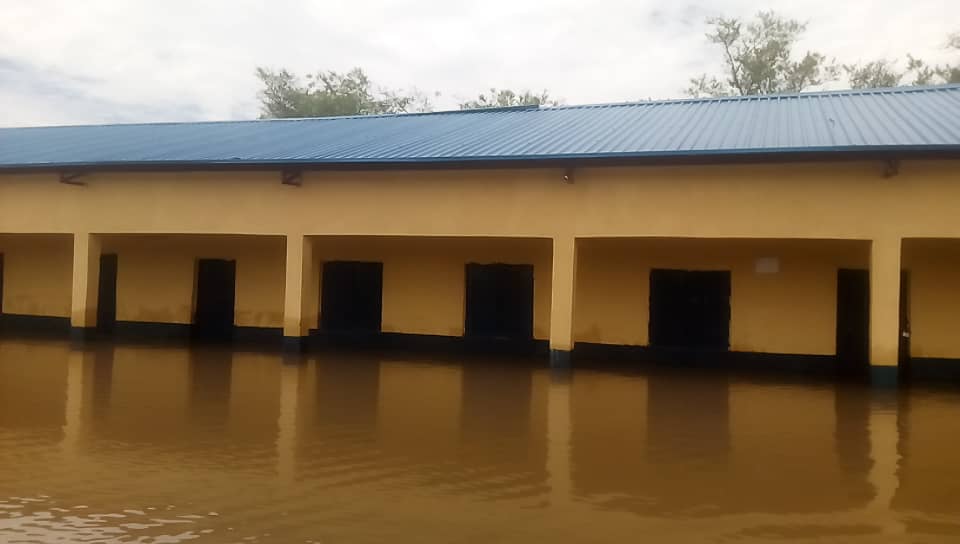This weekend we marked the 62nd anniversary of Nigeria’s independence. The joyous occasion was celebrated in Nigeria and by Nigerians in diaspora across the globe. Marred by the scourge of insecurity and economic hardships, the national day was tnot celebrated in full splendor by Nigerians. However, I could not help but think about the victims of what seems to be Nigeria’s worst floods since 2012.
I have written about the 2020 flood and the devastating impact on Nigerians, especially rural farmers who lost homes, crops and many lives in 20 states of the federation. This year, the National Emergency Management Agency (NEMA) says the floods in 27 of Nigeria’s 36 states affected half a million people, including 100,000 displaced and more than 500 injured. One of the frontline locations this disaster has hit is the north-western state of Jigawa where 91 deaths have been reported in the last few weeks.
- Swiss Huesler wins first ATP title in Sofia
- I criticise Buhari for failing to end killings in Benue — Ortom
The Hadejia-Nguru wetlands are some of the most biodiversed and densely populated flood plains of the Lake Chad basin. With the Hadejia and Jama’are waters and their multiple channels, coupled with floodlands as well as drylands, they support life and agriculture with potentials beyond imagination. Every year, flocks of migratory birds from the world over perch there. Every year, the wetlands support extensive wet-season rice production among other crops. When it is dry season, flood recession agriculture and dry-season irrigation are prevalent there. Thousands of fishing people earn a living there as well, year in year out. However, as if in a sharp contrast to the livelihood the wetlands support, almost every year, immense damage and hardship is caused to the millions of inhabitants of these lands by devastating floods or equally debilitating droughts. This year is no exception. Only, the floods are bigger and the effects more far reaching because of worsening global climate crisis, inadequate infrastructure and non-implementation of environmental guidelines.
This year, more than 300 people lost their lives, with another 100,000 displaced and many injured and missing across Nigeria. Authorities are blaming the floods this year on water overflowing from local rivers, the unusual rainfalls and excess water released from a dam in neighbouring Cameroon. Every time floods like these occur, I am left with so many questions. Why are our dams harbingers of disaster, instead of the adequate means of livelihoods they should be? Why are we unable to track, understand and employ measures against the persistently recurring floods caused by the overflow of our two main rivers for decades? What is the true cost of only ‘cushioning the effects’ of these disasters? Why do smallholder farmers with nothing more but their season’s harvest have to repeatedly lose everything? What are the indirect impacts caused by this seemingly inevitable displacement, loss and utter bereavement for our most vulnerable populations?
Both the Nigeria Meteorological Agency and the Hydrological Services Agency have predicted massive flooding in 2022 to be worse than the last two years due to excessive rainfalls and contributions from external flows and of course the unusual rainfalls. Donor agencies and even private firms have also repeatedly warned of the impending and imminent floods. Yet, farmlands and agricultural output worth billions, properties and incalculable livelihoods were still haplessly lost, yet again.
Whereas I understand how multi-faceted the disaster and its impacts are, and that a universal prevention is an otherworldly infrastructural task to ask for, my grouse is particularly with the normalisation of the predicament of smallholder farmers who lose everything on the farmland from the flooding, a phenomenon they cannot control and a risk they cannot lower. If anything, can the farmers at least make it out with what they have invested into their flooded farms? Just the farm input that must have cost the farmers everything, and without which they are unable to farm the next season and are thus thrown into a vicious trap they have no means of getting out of. I wrote an article earlier detailing some interesting index insurance products that could be transformational for Nigerian farmers. The 2022 floods have destroyed crops mostly in the North which produces majority of Nigeria’s food. This raises concerns that they could further affect food supplies already disrupted by the insecurity in region.
So as we celebrate the independence day of our great nation, I hope that these floods and their victims across 27 states of Nigeria will form a major part of national discussions. The truth is we must do better around environmental guidelines and adequate infrastructure for rural and urban dwellers alike. The Director General of the National Emergency Management Agency (NEMA) urged “…all the governments of the frontline states to move away communities at risk of inundation, identify safe higher grounds for evacuation of persons and prepare adequate stockpiles of food and non-food items.”
In a country with recurring flood disasters like Nigeria, this is a no-brainer and should be part of every one of these frontline state’s policies to prevent high casualties and to provide rapid and adequate response for victims.
Happy 62nd Independence day of our great Nation.


